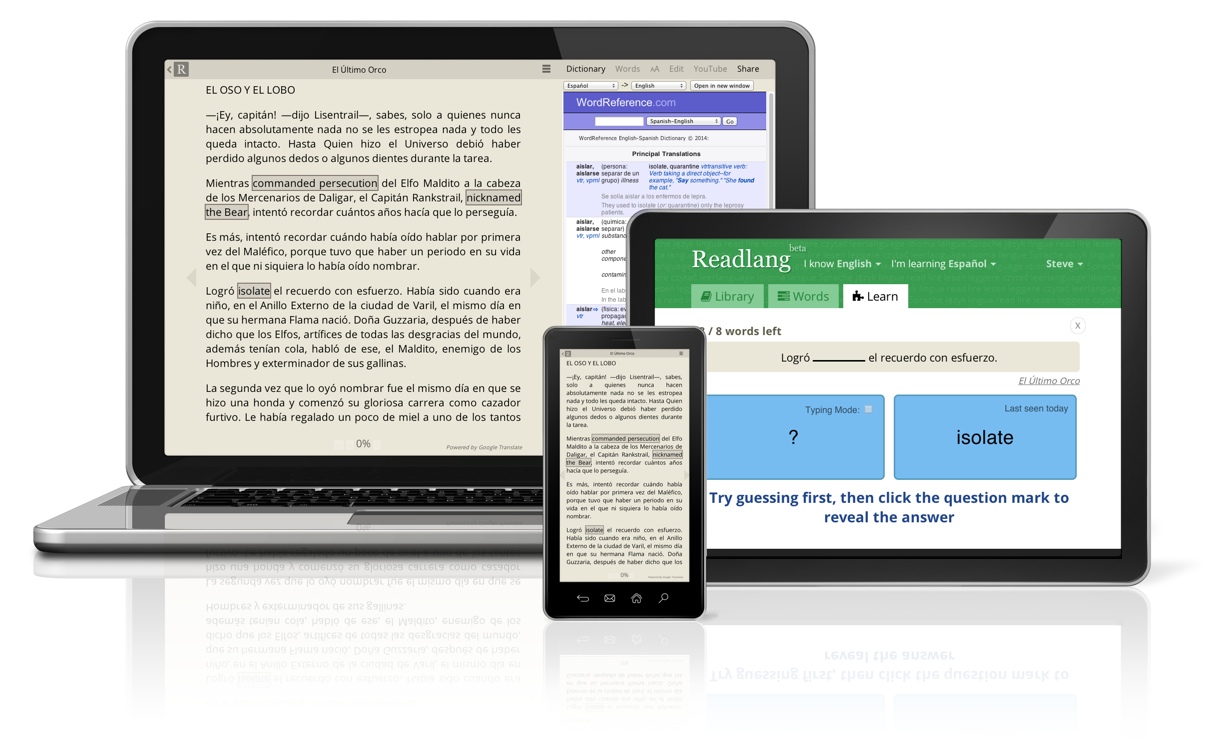10 tips how you can easily remember new words
In today’s guest post, Yohana Petrovic explains how to easily remember new words.
Are you learning a new language? Or maybe just working on improving your vocabulary?
Did you stumble across a new word while reading the other night and want to remember it?
We are all always trying to remember things. Those of us who love writing are even more likely to try to learn and remember new words, whether they are in our own language or in a language that is foreign to us.
Would you like to be able to have much better recall of all new words that you are learning? Then, here are ten tips to help you out.
1. Tie New Words to Old Words in Your Memory
Let’s say that you want to remember that the word “polyglot”. First you look it up in your dictionary or type it into a search engine. You will find that the definition is “knowing or using several languages” (at least, that is the definition according to the online Oxford Dictionary). So to remember what “polyglot” means, you could link it to a word with a similar definition such as the word “multilingual”. You can find more information here.
2. Match Your New Words to Pictures in Your Mind
This time let’s take the word “vex” as an example. You just read it in Pride and Prejudice and looked it up in your dictionary. So you know that the word “vex” means “to cause someone to feel annoyed, frustrated, or worried.” How are you going to remember this new meaning? Well, what happens when you feel annoyed, frustrated, or worried? Do you get a headache? Do your brows furrow? Now, imagine a stick figure. A cartoonist would draw x’s for the person’s eyes. “Vex” sounds like “x”. So to remember “vex”, just imagine an annoyed, frustrated, or worried cartoon character with x’s in place of its eyes and eyebrows.
3. Display Your Words Around Your House
One of the best ways to learn a new word is to constantly look at it, think about it, and bring to mind what it means. A good way to do this is to put words around your house. Now, don’t just put your words that you are trying to learn in random places. Are you trying to learn the phrase “J’adore”? (It is French for “I love”.) Then, put it near something that you love.
4. Use Acronyms
What is an acronym? It is where you form a new word from the first letters of several other words. For example, let’s say you are trying to remember the words “wily,” “odious,” “rancorous,” “decorous,” and “systemic.” How can you link these random words so that you can remember them? Well, the first letter of each word, put together, spells “WORDS.” This is an excellent way for you to remember several new words at once rather than remembering the meaning of new words.
5. Try Connecting Each Word In Your Mind With a Number
Let’s say that you need to remember three different new French vocabulary words that form a sentence when put together. These words are “J’adore le chocolat.” But you keep switching up the order. So, you need to attach each word to a number so that you can remember them as a sentence. Use either picture or auditory devices to link “j’adore” with “1”, “le” with “2”, and “chocolat” with “3”. This way you can remember each word in its proper order.
6. Make an Acrostic Sentence With Your Words
Did you ever take music lessons? If you did, then you remember having to learn the names of the lines of the treble clef. To remember them, you probably learned the phrase “Every Good Boy Does Fine.” The first letter of each word corresponds to the name of one of the lines of the treble clef. You can use this device to remember practically any word, phrase, or letter. You can find more information at this website.
7. Discuss Your New Words With Someone Else
Have you ever found that you understand a concept, a philosophy, or any other idea better if you explain it to someone and then discuss it with them? Not only is this a fun process, it is a proven memory device.
8. Make Flashcards
This step is pretty self-explanatory. If you are trying to learn a new word, one good way of remembering both it and its meaning is by turning them into flash cards. Put the word on one side of the flash card and the meaning on the flip side.
9. Use Your New Words in Sentences
One of the best ways of remember either a new word or the meaning of a new word or both is to use the word in a sentence. This way you can remember the word and, by the context of the sentence, what the word means.
10. Repeat, Repeat, Repeat
One of the best, most time tested ways to remember something is to keep repeating it over and over again. Whether you are trying to learn a foreign language or just a new vocabulary word, you end up having to repeat, repeat, repeat it to learn it.
Yohana Petrovic is a writer and educator. Yohana has 10 years experience in educating and now she is a proofreader at http://globalessays.org. You can reach her on Facebook or on Twitter: @YohanaPetrovic


